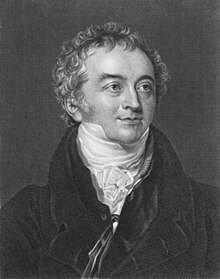History of energy
Today, energy is recognized as a fundamental conserved quantity across all domains of physics, underlying both classical and quantum phenomena.
[citation needed] To account for slowing due to friction, Leibniz claimed that heat consisted of the random motion of the constituent parts of matter — a view described by Francis Bacon in Novum Organon to illustrate inductive reasoning and shared by Isaac Newton, although it would be more than a century until this was generally accepted.
It also led to a mathematical formulation of the concept of entropy by Clausius, and to the introduction of laws of radiant energy by Jožef Stefan.
[5] In 1881, William Thomson stated before an audience that:[6] The very name energy, though first used in its present sense by Dr Thomas Young about the beginning of this century, has only come into use practically after the doctrine which defines it had ... been raised from mere formula of mathematical dynamics to the position it now holds of a principle pervading all nature and guiding the investigator in the field of science.Over the following thirty years or so this newly developing science went by various names, such as the dynamical theory of heat or energetics, but after the 1920s generally came to be known as thermodynamics, the science of energy transformations.
During a 1961 lecture[7] for undergraduate students at the California Institute of Technology, Richard Feynman, a celebrated physics teacher and Nobel Laureate, said this about the concept of energy: There is a fact, or if you wish, a law, governing natural phenomena that are known to date.
